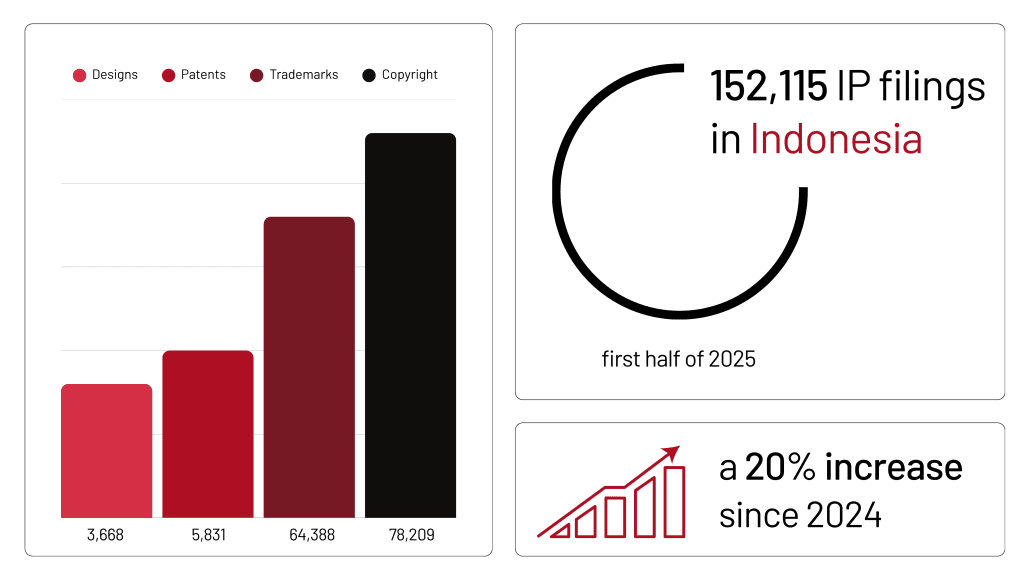WIPO–DGIP Collaboration and Copyright Updates
Indonesia is modernizing its copyright framework – and the signal is coming from the global stage. In July, the Directorate General of Intellectual Property (DGIP) met with the World Intellectual Property Organization (WIPO) in Geneva. Just days later, DGIP and WIPO reconvened to advance a National IP Roadmap under the Indonesia Emas 2045 vision, emphasizing IP as a driver of innovation, economic transformation, and sustainable development.
That momentum is backed by progress back in Indonesia. Minister of Law and Human Rights Bapak Supratman Andi Agtas highlighted the country’s digitalization of IP services, from filing to post-grant processes.
The results are already visible: in the first half of 2025, Indonesia recorded 152,115 IP filings, including 78,209 copyright registrations, 64,388 trademarks, 5,831 patents, and 3,668 industrial designs – a 20% increase over 2024.

This growth is paired with ongoing revisions to the Copyright, Patent, and Industrial Design Laws, aimed at delivering stronger legal certainty for creators, technology developers, and commercial users of protected content.
The forthcoming National IP Roadmap – building on the National IP Strategy last updated in 2017 focuses on making IP protection better integrated across sectors and more commercially useful. Expect capacity – building programs, enforcement support, and tools to help businesses translate creative and technical assets into economic value.
For copyright-reliant sectors (media, software, design, education, entertainment, digital platforms), this means more structure.
Our Recommendation
Use this period to get ready for a more digitalized copyright system:
- Audit your copyrights. Know what content, software, designs, publications, data sets, and media your organization owns, uses, licenses, or distributes.
- Review contracts and licenses. Confirm that agreements with agencies, developers, content creators, and platform partners actually transfer or license the rights you rely on – especially for digital and cross-border use.
- Align internal policies with future rules. Update brand, marketing, product, and platform guidelines to reflect likely changes in music, digital content, and AI-related copyright use.
- Leverage digital filing systems. Faster electronic processes mean you can secure registrations earlier-often critical in disputes, licensing, and valuation.
- Plan for commercialization. A clear copyright position can support franchising, streaming, educational licensing, or regional expansion tied to Indonesia’s “Local Roots, Global Reach” innovation push.
At SKC Law, we have proven strategies to create effective and efficient solutions.
Contact us for more information or submit a custom inquiry via our Contact Page.
Follow our LinkedIn page for more updates.




